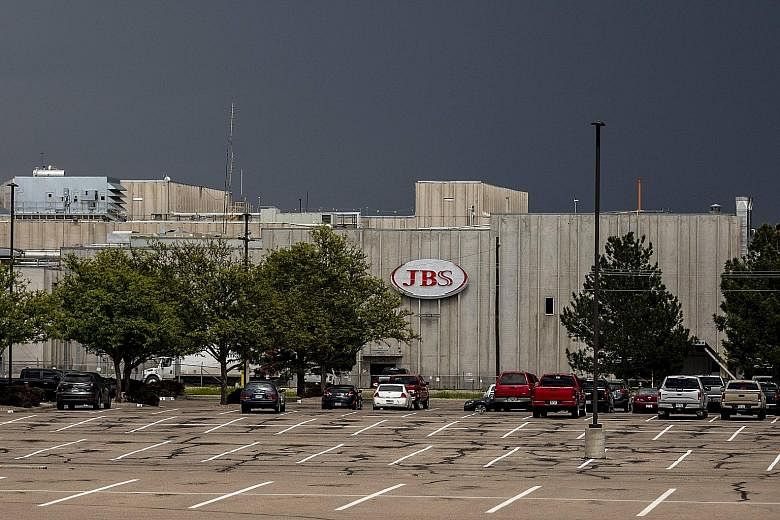WASHINGTON • JBS USA said it paid US$11 million (S$14.6 million) in ransom to the criminals responsible for the cyber attack that disrupted operations across North America and Australia, the latest high-profile example of large corporations falling prey to extortion.
"This was a very difficult decision to make for our company and for me personally," JBS USA chief executive officer Andre Nogueira said in a statement. "However, we felt this decision had to be made to prevent any potential risk for our customers."
A spokesman for JBS Brazil said the ransom payment was made in Bitcoin.
A White House National Security Council spokesman said on Wednesday night that "private companies should not pay ransom. It encourages and enriches these malicious actors, continues the cycle of these attacks, and there is no guarantee companies get their data back".
The spokesman, who did not mention JBS, reiterated calls for more cooperation between the government and the private sector to deter ransomware attacks and for companies to "put in place the cyber security defences to meet the threat".
The cyber attack on May 30 forced the Sao Paulo-based meat giant to shut down all of its beef plants in the United States, accounting for almost a quarter of American supplies. It also halted slaughter operations across Australia and idled one of Canada's largest beef plants.
The Federal Bureau of Investigation has attributed the incident to REvil, a hacking group that researchers say has links to Russia.
The global shutdowns alarmed the agricultural industry and raised concerns about food security as hackers increasingly target critical infrastructure.
Operations have returned to normal levels and the company expected lost production to be fully recovered by the end of this week.
Dow Jones had earlier reported the JBS ransom payment.
JBS is the latest company to pay hackers after a cyber attack. Colonial Pipeline paid US$4.4 million, or 75 bitcoins, in ransom after a hack that forced it to shut the largest fuel pipeline in the US on May 7, driving up petrol prices and sparking shortages at filling stations.
The recent spate of cyber attacks has prompted lawmakers to push for greater transparency on ransom payments. Senate Intelligence Committee chairman Mark Warner said it is "worth having" a debate over whether to make paying ransoms illegal for US companies as doing so exacerbates and accelerates the problem.
JBS, in its latest statement, said the vast majority of the company's facilities were operational at the time of payment.
BLOOMBERG

